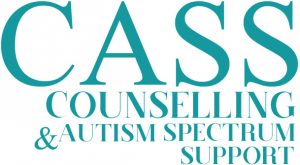When we start working with clients of CASS, we are very mindful of how they prefer to be described. Some people call themselves autistic, auties, aspies or say they have autism or aspergers. Comparatively, many clients don’t like being called autistic. I think what is more acceptable these days to refer to neurodiverse traits and although it’s certainly a personal choice.
Words and language are incredible assets by which an individual can communicate thoughts, regardless of whether dynamic, significant, or concrete. Editorial managers know firsthand that language and the implications append to words put many effects, impact, create and change the mentalities that others have toward conversation topics. Changing an expression modifies the inconspicuous undertones and subtleties of the discourse.
Person-First Language:
Parents of Autistic individuals and experts who work with such individuals sometimes favour phrasing “individual with autism,” “person with autism,” or “individuals with ASD.” They don’t believe it to be essential for a person’s character and don’t need their kids to be distinguished. Moreover, they need a person-first language that puts individuals before any identifier, for example, autism, to emphasise their kids’ humanity.
The hypothesis behind person-first language is that it puts the individual before the condition and underlines the person’s value and worth by remembering them as an individual rather than a condition.
Identity-First Language:
Some individuals with neurological conditions embrace the identity-first language, which positions the condition as an identity classification. This language is known as identity-first because the distinguishing word starts things out in the sentence and features the individual’s embrace of their character.
In the autism community, some self-advocates and their partners incline toward phrasing, for example, “Autistic person,” “Autistic individual,” or “Autistic” since they comprehend autism as a natural part of a person’s personality. A similar way one alludes to “Muslims,” “African-Americans,” “Lesbian/Gay/Bisexual/Transgender/Queer,” “Chinese,” “talented,” “athletic,” or “Jewish.”
Person-First V/S Identity-First Language:
Autism is a neurological, developmental condition, and it is unique and different from multiple points of view. It is deep-rooted. It is an enlightening and essential segment of an individual’s character, and it characterises the manners by which an individual encounters and comprehends their general surroundings. It is all-pervasive.
With the use of “individual with autism,” the creators firmly restrict language alluding to neurodiverse-like experiences, which generally argues self-advocates. It is comprehendible that not every person who supports the use of the wording “individual with autism” would disagree with language like “suffers from.”
Embracing diversity in everyone encourages a person to not be apprehensive or embarrassed about characteristic distinctions which is often the key to happiness and confidence in life for the whole of society.
References:
Evans, M. (n.d.). Identity-first language. Retrieved March 01, 2021, from https://autisticadvocacy.org/about-asan/identity-first-language/
Identity-first language. (n.d.). Retrieved March 01, 2021, from http://www.autisticscholar.com/84-2/
Identity-first vs person-first language. (n.d.). Retrieved March 01, 2021, from https://pwd.org.au/resources/disability-info/language-guide/identity-vs-person/#:~:text=Many%20people%20with%20disability%20also,person’s%20embrace%20of%20their%20identity.
Simonsen, D., & Mruczek, D. (2020, August 22). Person-first vs. identity-first language. Retrieved March 01, 2021, from https://educationonline.ku.edu/community/person-first%20vs.%20identity-first%20language
Thorpe, J. (2017, August 09). What is Identity-first Language, & should you use it? Retrieved March 01, 2021, from https://www.bustle.com/p/what-is-identity-first-language-should-you-use-it-74901


